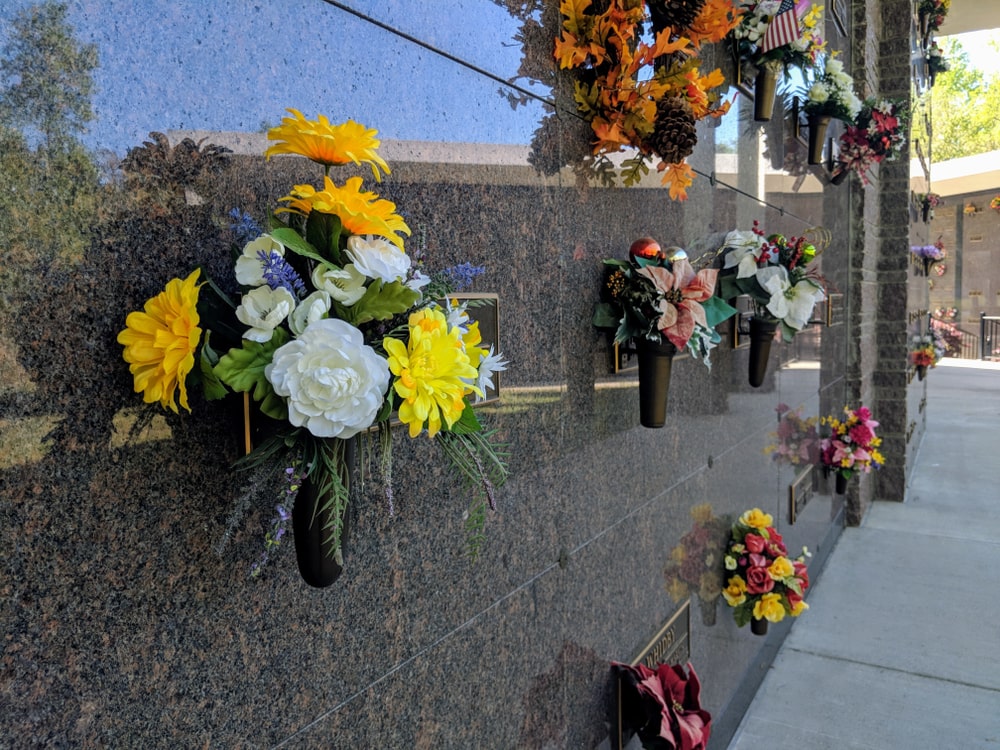
Grief is hard, no matter the circumstances. Losing someone we love to illness, accident, or even natural causes is one of the most emotionally taxing experiences in life. But what if you live far away from home or are feeling alone with no close friends? What does grieving look like then? To help you through this season of grief when you’re feeling isolated, here are a few suggestions for honoring your loved one’s life and doing the work of grief.
1. Find a Way to Honor Your Loved One’s Life

While you may not be able to attend the funeral and memorial services in person, consider attending online via livestream. Most funeral homes now offer this service, and it’s become a standard offering. You could create a memorial photo or scrapbook with all your favorites. Write down the stories you love about your loved one so that you can share with the family online or on a phone call. Upload photos of your loved one to your preferred social media platform and write a tribute. Consider writing a grief journal so you can express what’s on your heart and mind during this time of grief.
2. Schedule Video Calls with Friends and Family

A hug may be just what you want right now, but sometimes, we have to do the next best thing. Instead of sitting at a coffee shop, have a coffee date via video call in your own living room. While face-to-face is preferable, you don’t need to be in the same room to give and receive love and support. Instead of attending the visitation, talk on the phone or schedule video calls. Use technology to your benefit. When you lose someone you love, talking about that person, your memories, your fears, and your sadness is all part of the grieving process. Instead of turning inward, turn outward and talk with people who care about you through digital avenues.
3. Practice Self-Care

During times of grief, it’s even more important to be kind to yourself. Dr. Alan Wolfelt, a nationally respected author and grief counselor, has a lot to say about self-care. He states: “The word ‘bereaved’… means ‘to be torn apart’ and ‘to have special needs.’ So, despite its obsolescence, the word is still accurate and useful. Perhaps your most important ‘special need’ right now is to be compassionate with yourself. In fact, the word ‘compassion’ means ‘with passion.’ Caring for and about yourself with passion is self-compassion.”
So, at this time of grief, treat yourself with kindness and compassion. Give yourself time to grieve – there’s no rush. Express what you’re feeling – through journaling, creative writing, painting, wood-working, listening to or composing music, praying, or simply talking with another person. Take care of your health and ensure that you are eating well and exercising. Get enough sleep. Grief can sap your energy, so by taking care of yourself, you can find the motivation to continue to move forward.
4. Express Yourself

Grief makes us feel things that may be outside our normal. It could be a deep sadness, anger, guilt, regret, or even relief. No matter what you’re feeling, these are all normal reactions to losing a loved one. More important than what you feel is how you process and deal with your feelings. For many of us, the solution is to stuff down our emotions and keep soldiering on, especially when faced with difficult circumstances. But trying to ignore what you feel won’t make it go away. In fact, stuffing your grief away can have serious consequences on your mental and physical health. Rather than avoid what you’re feeling, give yourself permission to grieve and find ways to express yourself in a way that makes sense for your needs and personality.
5. Plan a Celebration of Your Loved One’s Life

If you aren’t able to attend the final tribute – for whatever reason – consider planning something to mark your loved one’s life. That might mean working with the surviving family members to host a get-together later when you’re able to attend. It may mean planning a dinner party with your closest friends nearby. Depending on your circumstances, it may even mean having an online get-together. No matter what it looks like, no matter your circumstances, make an effort to acknowledge the reality of your loved one’s death and celebrate their life and its significance.
And Remember, Grief is a Journey

In many ways, grief is a journey – one we’d rather not take. It’s a journey that requires much from us, but one that is worth taking. If you do the work of grief, you will eventually reach reconciliation. You won’t “get over” the loss – that’s not possible – but you will find a way to move forward. Dr. Wolfelt puts it this way: “Never forget that the death of someone loved changes your life forever. It’s not that you won’t be happy again. It’s simply that you will never be exactly the same as you were before the death.” So, slow down, breathe deeply, and take the time you need to grieve.
May these suggestions help you grieve when you’re feeling isolated and find the healing you need to move confidently and wholly into the rest of your life.














